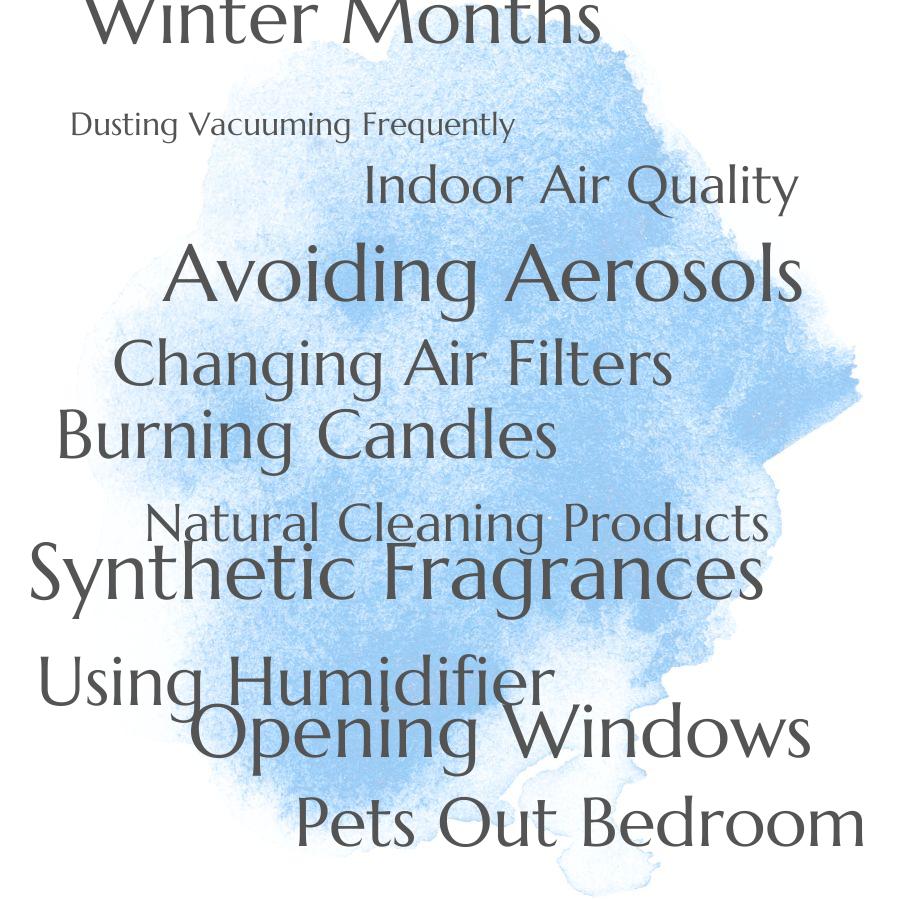Maintain good indoor air quality during the winter months by ensuring proper ventilation, using an air purifier or humidifier, changing furnace filters regularly, and avoiding using products that release pollutants.
As the cold winter months approach, it is important to take steps to ensure that your home’s indoor air quality remains healthy. Poor indoor air quality can lead to a variety of health issues, such as asthma and allergies, and can make you more susceptible to colds and flu.
To help maintain good indoor air quality during the winter months, here are some tips you can follow:
Using a Humidifier

Humidifiers work by adding moisture to the air, which helps reduce dryness and prevent static electricity. This can help alleviate symptoms of dry skin, sore throats, and other respiratory issues that are common in cold weather.
Increasing humidity levels can also help reduce dust mites and other allergens in the home. It is important to use a humidifier with clean water and regularly change out filters or wicks as needed to ensure optimal performance.
Changing Air Filters Regularly
One of the most effective ways to do this is by changing your air filters regularly. Air filters are designed to capture dust, dirt, pollen, pet dander, and other airborne particles that can cause allergies or respiratory issues.
When these filters become clogged with debris, they can no longer effectively filter out pollutants from the air in your home. Therefore, it’s important to change them every few months or as recommended by the manufacturer in order to keep your indoor air clean and safe.
This will also help improve energy efficiency since a clogged filter restricts airflow which makes it harder for heating systems to work properly.
Avoiding Burning Candles or Incense
However, burning these items indoors can have a negative effect on air quality. The smoke from candles and incense contains particles that can irritate the lungs and cause respiratory problems.
Burning these items releases volatile organic compounds (VOCs) into the air which can contribute to poor indoor air quality. To maintain good indoor air quality during the winter months, it is best to avoid burning candles or incense indoors.
Instead, opt for other ways of adding scent such as using essential oils in an oil diffuser or simmering spices on the stovetop with water. These methods are much safer for your health and will help keep your home’s air clean and fresh all season long!
Opening Windows for Ventilation
By opening windows, fresh air from outside can enter the home and replace stale, stagnant air inside. This helps reduce levels of pollutants such as dust, pollen, and pet dander that can accumulate in a closed environment.
Opening windows allows moisture to escape from the home which prevents mold growth and other allergens from forming. Opening windows also helps regulate temperature by allowing warm air to escape when it gets too hot indoors or cold air to come in when it gets too cold indoors.
It is important to open windows only when temperatures are above freezing outside so that no damage occurs due to condensation or frost buildup on window frames or sills.
Using Natural Cleaning Products
Natural cleaning products are made from plant-based ingredients, such as essential oils and other natural substances, that are free of harsh chemicals. These products can help reduce the amount of airborne pollutants in your home by eliminating odors and removing dirt and dust particles from surfaces.
They can help improve air circulation by breaking down allergens like pollen and pet dander that may be trapped in carpets or furniture. Natural cleaning products also have a much lower environmental impact than traditional chemical cleaners because they don’t contain any toxic ingredients or release harmful fumes into the air when used.
By using natural cleaning products instead of chemical ones, you can ensure that your home’s indoor air quality remains healthy throughout the winter months.
Dusting and Vacuuming Frequently
Dusting helps to remove dust particles from surfaces, which can otherwise be circulated through the air when heated by a furnace or other heating system. Vacuuming helps to remove dirt, pet hair, and other debris that can accumulate on carpets and rugs.
This debris can also be circulated through the air if not removed regularly. Both dusting and vacuuming should be done at least once a week in order to keep indoor air clean and free of pollutants that could cause health problems for those living in the home.
Keeping Pets Out of the Bedroom
Pets can bring in allergens, such as dander and fur, which can cause respiratory problems for people with allergies or asthma. Pet urine and feces can emit odors that are unpleasant and unhealthy to breathe in.
To keep these allergens and odors from entering your bedroom, it is best to keep pets out of this space altogether. If you must allow your pet into the bedroom occasionally, make sure to vacuum regularly and use air purifiers to reduce airborne particles.
Avoiding Synthetic Fragrances and Aerosols
One way to do this is by avoiding synthetic fragrances and aerosols. Synthetic fragrances are chemicals that are added to products such as candles, air fresheners, laundry detergents, fabric softeners, and cleaning supplies in order to give them a pleasant smell.
Aerosols are sprays that contain chemicals which can be released into the air when used. Both of these products can release volatile organic compounds (VOCs) into the air which can cause irritation of the eyes, nose, throat and lungs as well as headaches or dizziness.
To maintain good indoor air quality during the winter months it is best to avoid using synthetic fragrances or aerosols indoors whenever possible.